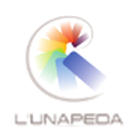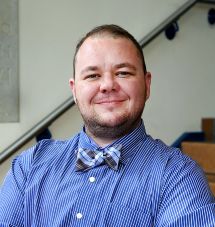Navigation

Deaf people have published vlogs and blogs explaining that hearing people should not teach sign language; this contributes to the marginalization of deaf people. Those complaints (see examples here and here). have suggested that sign language teaching to nondeaf students should be the realm of deaf people and heritage signers.
This has become a question of social and disability justice. In the context of disability justice, we interrogate the underlying and overarching factors in this resistance to nondeaf people teaching sign language. This resistance is partly rooted in a neoliberal critique of the university. Universities in the United States have profited handsomely from sign languages.
There has been a tremendous growth of interest in learning sign language in the United States. Universities benefit from increased enrollment, tuition benefits, and government grants to do deaf-related and signed language research. This benefits the reputation of the university and its bottom line.
However, the question remains of deaf people’s access to the university. Access remains problematic and universities often cite costs as a reason for denying or offering minimal access. In the United States, some highly reputed universities eagerly offer sign language classes and deaf-disability studies classes while turning around and denying access to deaf and disabled people (see for example here and here). How do we reconcile this?
(...)
Deaf and disabled people offer valuable situated knowledges that cannot be replicated or taught by abled people. Not only should deaf and disabled people be teaching in the university, universities need to engage more with local communities of disabled and deaf people. Language and people cannot be cleaved apart. Irresponsible teaching of signed languages can lead to language endangerment. Universities that offer sign language interpreting programs need to be mindful of two-tiered faculty structures where nondeaf faculty enjoy higher status than deaf faculty members. Sign language teaching deserves the same prestige as teaching any other spoken language.
We should remember that sign language learning is an opportunity to create a more inclusive world for deaf people. Sign language students today may later be doctors, teachers of deaf children, policy makers, or researchers with the potential to impact the quality of life for deaf people as well as the status of signed languages.
Universities have a choice. Either respect deaf and disabled people as well as signed language and work on the inclusion of disabled and deaf people without objections to cost or convenience of access. Or march along while neglecting the value of signed languages and disability. Doing so entrenches the marginalization of deaf and disabled people as well as signed languages.

Octavian E. Robinson
Octavian E. Robinson earned his PhD in history from the Ohio State University and is Assistant Professor at St. Catherine University. He has published chapters on deaf women’s history, ableist rhetoric, and citizenship in the United States. His recent work has pivoted to disability justice, politics and rhetoric surrounding signed languages, and ableism. He’s on Twitter as @DeafHistorian
| 
Jonathan Henner
Jonathan Henner is Assistant Professor in the School of Education at the University of North Carolina at Greensboro. His work thus far has taken three strands: a) he examines how different factors impact the development of language and cognitive skills in deaf and hard of hearing children; b) he looks at how to best asses and measure the language skills of deaf and hard of hearing populations, and c) he examines the experiences that deaf academics have in academia and how scientists interact with deaf people. He’s on Twitter as @jmhenner
|